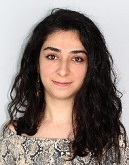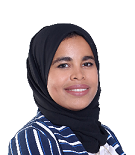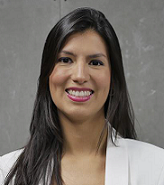Session description
This YOUTH DEBATE brings together young leaders to share their views about key elements that impact young peoples’ transitions to and within the labour market. The focus will be on decent work and productive employment from the perspective of: the school-to-work transition; technological change, including new forms of work and lifelong learning; and gender equality, rights and voices.
Background
Young and educated. That is how we can describe today’s youth generation. Education across the globe has seen dramatic improvements in accessibility, quality and quantity. However, the lack of employment opportunities for youth presents a major global challenge. There are 59.3 million unemployed youth worldwide. Young people remain less likely to be employed compared to adults. In 2018, the global youth unemployment rate was at 11.8 per cent, almost three times higher than the adult rate of 4.3 per cent. Even when young women and men find jobs, quality remains a concern. Over 40 per cent of the world’s youth are either unemployed or have a job but live in poverty. In addition, an estimated 21.8 per cent of young people are neither in employment nor in education or training (NEET), most of them female. Globally, the female NEET rate is 34.4 per cent, compared to 9.8 per cent for males.
Automation, digitalization and new technologies also pose new challenges as the relevance of education and training is now limited over time. Technology not only affects the ways we organize the production of goods services. It also affects how young people learn and develop new skills. Adapting learning models to new technologies will be essential to guarantee relevant skills for a lifelong employability. As new forms of work arise such as those in the gig economy, young people need to be equipped to navigate an already complex labour market. Moreover, governments and social partners should ensure that young people benefit from basic social protection and guarantee their fundamental principles and rights at work.
These challenges will only become greater in the future due to the rapidly growing youth population in some regions, where youth unemployment is increasing alongside education levels. The failure to tap into this enormous potential will create long-term developmental and societal consequences. Young people need strong support through this transition so that they integrate into labour markets and become active members of our societies.
Format
The side talk will be structured as follows:
- Welcoming by Valter Nebuloni, Unit Head, ILO Youth Employment Programme
- Introduction by the moderator (Mr Marcelo Cuautle Segovia) and presentation of the panelists (5 minutes)
- Guiding question 1 and discussion (15 minutes)
- Guiding question 2 and discussion (15 minutes)
- Questions from the public (15 minutes)
- Wrap up (5 minutes)
Panelists
Joannie Marlene Bewa is a physician, researcher, and a global advocate for the SDGs, with a focus on health, education and gender equality. In 2010, she created the Young Beninese Leaders Association (YBLA). YBLA has reached 10,000 youth on HIV awareness, sexual reproductive health, and trained 3,000 women with support from the Michelle Obama Young African Women Leaders Grant. Joannie was a Youth Focal Point for Oxfam Quebec in Benin, led the “Benin Post 2015 campaign” and reached more than 2000 youth virtually on SDGs. She was awarded the “Youth Oscar Awards” by the Ministry of Youth Affairs in Benin and selected by her Government in 2015 as a youth representative for the 48th Commission on Population and Development in New York.
May Makki is a Research and Program Officer at the Arab NGO Network for Development (ANND). Her work is mainly focused on civic space, Agenda 2030, and development cooperation, as she is also the MENA regional coordinator for the CSO Partnership for Development Effectiveness. She graduated with a BA in Political Studies from the American University of Beirut (AUB) in Fall 2017, and has been very active with civil society organizations, and the student and feminist movements in Lebanon. She has a keen interest in development issues, on both the national and regional levels, and has previously worked with UNESCWA Centre for Women. May is a Lebanese national born in 1996.
Rumaitha Al Busaidi currently plays a management role at Middle East for GlassPoint Solar; which is a World Economic Forum Technology Pioneer and an industry leader in solar energy. Rumaitha is the vice chair of the food manufacturing committee of the National Program for Enhancing Economic Diversification (Tanfeedh) that explores ways to diversify the Omani economy away from oil and gas. She is also an executive Board member of the Environment Society of Oman (ESO), the only environmental civil society organization in Oman, an advisory board member of AIESEC, and is a co-founder of the Oman Fencing Committee. She was named by the European Commission as a One Young World Peace Ambassador, a Challenge 22 for the World Cup 2022 Ambassador, and an IEP Ambassador for the Institute for Economics and Peace (IEP). Rumaitha holds two MSc degrees in Environmental Sciences and Aquaculture Management respectively.
Namirembe Molly is a Ugandan aged 26. Currently she is a program manager and ILO SCREAM (Supporting Children's Rights through Education, the Arts and the Media) trainer at Somero Uganda, a non-governmental organization in Uganda on protection of children. Molly is passionate about working with children and youth and has done this since 2015. Molly has a bachelor's degree in social work and social administration from Makerere University, a certificate in HIV counseling and basic care for children and a certificate in child protection from Makerere University. For Molly supporting children is not just a job but a passion.
ALEJANDRA SÁENZ is the Sub Secretary at the International Youth Organization for Ibero-America (OIJ). She is a Magister in Public Administration and Marketing, with more than 6 years of professional experience in the International Cooperation field focused on Ibero-America and Ibero-american youth. She is also experienced in the establishment of strategic alliances and fundraising. She has worked with governments, international organizations and the private sector, to get financial and logistical support to youth focused public




